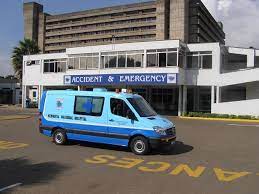
Fistula is a hole or a connection that forms between two organs of the body. It can be as a result of failed force of blood to the apkins causing a decomposition. In women, fistula occurs as a result of dragged labor, injury when witnessing pelvic surgery, infection, inflammation or radiation treatment in the pelvis or genitals. This affects the bladder and vagina or rectum and vagina.
Types of Fistula.
The most common types of fistula are;
Anal.
An anal fistula develop due to infection of the tunnel between the skin and anus or the muscular opening at the end of the digestive tract. Most anal fistulas occur as a result of an infection in the anal gland that spreads to the skin. Symptoms of anal fistula include pain, swelling and discharge of blood or pus from the anus. Anal fistula has got types namely; Intersphincteric, transphincteric, suprasphincteric and extrasphincteric depending on the location.
Obstetric.
This is a hole between the birth canal and bladder or rectum. So, it occurs due to dragged or dammed labor, cancer, radiation remedy and surgical complications. Depending on the size and position of the fistula, there may be foul- smelling vaginal discharge or passage of coprolite from the vagina. Still, obstetric fistula has types namely;
- Vesicoviginal fistula which occurs between the bladder and the vagina.
- Urethrovaginal which occurs between urethra and vagina.
- Rectovaginal that occurs between the rectum and vagina.
- Ureterovaginal which occurs between urates (kidney tubes) and vagina.
Arteriovenous.
This is an abnormal connection between the artery and a vein. It occur in the legs, The symptoms are red swollen skin and purplish blood vessels and, bulging veins that can be seen through the skin. Therefore, this type occurs through injuries that may pierce the skin. Such injuries include gunshots and stab wound on a part of your body, where a vein artery are side by side. There are several types of arteriovenus fistula. These are;
- Acquired AV which is not present at birth and happens due to an injury.
- Arteriovenus fistula which affects the neck or face causing swelling and abnormal pulsing.
- Dural AV which occurs within the dura, that covers the brain. Occasionally this type is seen at birth while other times, the condition becomes apparent at later stages of childhood. However, a large AVF can result to cardiac failure at birth.
- Spinal AV which happens next to the spinal cord causing numbness.
- Cerebral AV which occur in the brain. This happens when blood flow is diverted away from the brain tissues into the draining vein.
Symptoms of fistula.
Depending on the type, here are some symptoms to check;
- Constant urine leakage from vagina.
- Irritation of external female genital organs.
- Frequent urinary tract infection.
- Leakage of gas and feces into the vagina.
- Fluid drainage from vagina.
- Abdominal pain.
- Diarrhea
- Vomiting.
- Nausea.
Treatment of fistula.
For treatment and repair procedure, you should seek advice from specialist of the concerned body organs. This is because they to tell the best plan of treatment needed, depending on location, size and condition. Therefore, in more severe cases, repair may require surgery.
- Jerry Springer age, family, shows, wife, children, death, worth.
- Russ Spencer age, education, children, wife, net worth, and fox5.
- Iam Tongi age, education, career, parents, girlfriend, net worth.
- Oscar Pistorius age, wife, children, imprisonment, career, net worth.
- Coco Lee bio-age, family, husband, children, career.
- Taylor Swift bio-age, edu, career, relationship, and net worth.
- Joe Nyutu Biography, Age, Family, Education, Career, Net worth
- Egerton university, fees, location, courses.
- Mount Kenya University history, fees, courses
- Best Public High Schools in Kiambu County.
- What is the history of Kenyatta University?
- List of Accredited Private Universities in Kenya
- List of Best private secondary schools in Nairobi County.
- A list of special secondary schools, and contacts.